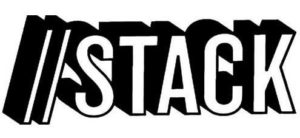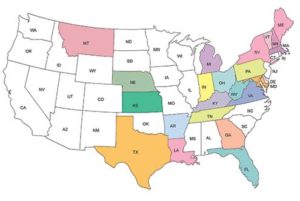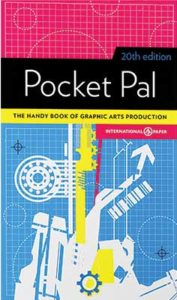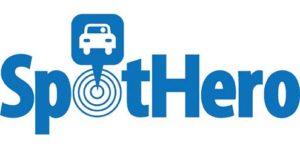Get Your Geek On
 It’s critical for publishing professionals to stay informed about technology and how it changes the way we communicate. One easy way? Tune into National Public Radio’s All Tech Considered. The on-air segment (part of All Things Considered) explores how technology influences culture and connection in our world. The show reports on behavior, privacy and security, social impacts, and innovation. The best part? You can listen at your leisure. Browse the stories, maintain a queue, and play the segments (most of which are under 10 minutes) using NPR’s online audio blog features. Each piece is also presented as an online story. Get the content delivered to you by subscribing to the RSS feed or following @npralltech on Twitter. tinyurl.com/alltechconsidered
It’s critical for publishing professionals to stay informed about technology and how it changes the way we communicate. One easy way? Tune into National Public Radio’s All Tech Considered. The on-air segment (part of All Things Considered) explores how technology influences culture and connection in our world. The show reports on behavior, privacy and security, social impacts, and innovation. The best part? You can listen at your leisure. Browse the stories, maintain a queue, and play the segments (most of which are under 10 minutes) using NPR’s online audio blog features. Each piece is also presented as an online story. Get the content delivered to you by subscribing to the RSS feed or following @npralltech on Twitter. tinyurl.com/alltechconsidered
Writing, Explained

Wondering if you’re at your wits end or your wit’s end? Check out Writing Explained. The site offers tips and tricks for writers, with an entire section devoted to “Confusing Words.” If you find yourself reading the latest issue of Esquire and questioning what the difference is between whiskey versus whisky, it’s all explained here. (Hint: If it’s distilled in the U.S. or Ireland, use the version with an “e.”) Also, for editors and writers who work in the always-changing world of AP Style, there’s a whole tab devoted to all the ins and outs for those times your stylebook is buried somewhere on your desk. Sign up for the e-newsletter to receive weekly tips in your inbox. writingexplained.org
Inspiration Delivered to Your Door

The best inspiration can come from something that’s just. totally. different. Out-of-the-box. Independent magazines qualify as precisely that. They break rules and push boundaries, editorially and visually. But, they can be hard to find. So let them come to you.
Stack selects the best independent magazines out there and mails one per month to its subscribers. The titles are always current and always top shelf — quality writing with cutting-edge design and exacting production values. Based in England, Stack sources titles from around the world, written in English. Subscription options are $15/month, $40/quarter, or $150/year, including shipping (use discount code PAGES2017 for 10 percent off your first payment) — a good deal considering that some titles, if you can find them, cost upwards of $20/issue. Bonus: Every delivery comes with a letter from founder Steven Watson with details about the title and why he picked it.
If you want to test the waters, there are two ways to buy single issues: Order a title from a past Stack delivery while supplies last, or try the Sampler option, which offers a different magazine every week. Ordering is optional per offering, 10 percent off the cover price, free delivery (even to the U.S.). The stack online blog is also a great way to get an inside look at select independent magazines and the people who make them. stackmagazines.com
Mail
Anywhere

Did you know you can mail your magazine from multiple postal mailing locations without paying for additional permits? If the answer is “No,” you’re not alone. We find that many publishers are unaware of the USPS Mail Anywhere program (launched in 2014), which enables you to use one permit to mail from all USPS mailing locations nationwide. Utilizing multiple drop locations can both facilitate your distribution strategy and help you reap additional postal discounts. The program is available to publishers who maintain their own mailing permit, mail using a full-service Intelligent Mail barcode, and submit postal statements electronically. You are required to deposit your postage payments at the post office where your permit is held (your “originating office”). Supported mail classes include First-Class, Marketing Mail, Package Services, and Periodicals. Contact your mail service provider for details and help getting started.
Waze to Get Where You’re Going

You’re in an unfamiliar place, need to get to an important meeting, and have no idea about local traffic patterns, much less construction projects or other potential snares. Turn to the free Waze app. This GPS-based tool provides turn-by-turn navigation enhanced with user-submitted, on-the-road intelligence. Billed as a community-driven app, users can report accidents, traffic jams, speed traps, and road work — as well as suggest updates to map details like landmarks and building numbers. Using the collected information, Waze provides best routing and real-time traffic updates. User device requires GPS. waze.com
The Handy Book of Graphic Arts Production

Since its debut in 1934, the “Pocket Pal” has served as an authoritative reference guide to the graphic arts for students, artists, designers, printers, publishers, advertisers, buyers of printing, and virtually anyone associated with visual communications. Frank Romano of the Rochester Institute of Technology School of Print Media edited the current (20th) edition, with particular attention to updating the information about digital printing and PDF workflows. Published by International Paper Company. tinyurl.com/IPpal
Be the (Parking) Hero

Pack a powerful one-two navigation punch by paring Waze with SpotHero. The latter is a parking reservation service that enables drivers to reserve and prepay for affordable parking spaces at more than 3,000 lots, garages, and valet services. SpotHero, which operates a mobile app and website, is available in 47 cities in the United States and Canada. Compare parking options, reserve your spot, park, and go! spothero.com

